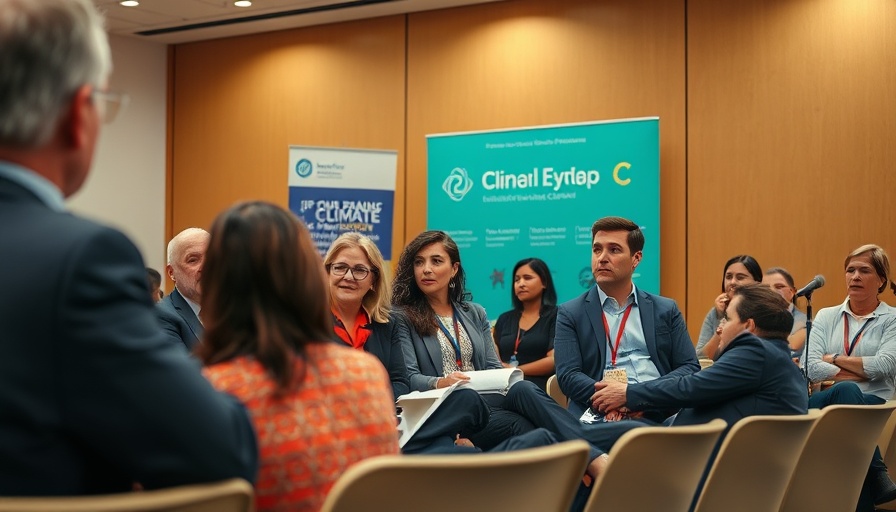
Transforming Climate Disaster Preparedness in Africa
Africa is at the precipice of transforming its approach to climate crisis management with the launch of the Space for Early Warning in Africa (SEWA) initiative. Officially unveiled in Windhoek, Namibia, during a high-level forum from June 23 to June 27, 2025, SEWA is poised to enhance the continent's capacity for disaster preparedness through satellite technology. As climate-related disasters escalate, this new system represents a significant shift toward proactive rather than reactive management.
Why SEWA Matters: The Necessity for Innovation
The urgency of SEWA cannot be overstated. Africa is facing unprecedented climate challenges, from droughts to floods, which threaten food security and livelihoods. By integrating satellite technology into early warning systems, African nations can implement timely interventions, thereby saving lives and reducing economic loss. This blend of technology and climate resilience is essential for sustainable development.
The Role of Technology in SEWA: A Technological Leap
Central to SEWA's effectiveness is the interplay of technology. Advanced tools such as artificial intelligence (AI) and machine learning are utilized to analyze data and derive actionable insights. For instance, predictive analytics can forecast climate patterns, allowing governments and organizations to prepare adequately. The implementation of these technologies signals a shift toward a more data-driven approach in tackling climate issues.
Global Collaboration and Resource Sharing
The success of SEWA illustrates the importance of international cooperation in addressing climate crises. Collaborating with global partners, African nations can share best practices, technical expertise, and resources necessary for an impactful early warning system. This interconnectedness underscores a broader commitment to collective resilience against climate change.
Challenges Ahead: Overcoming Barriers to Implementation
While the potential of SEWA is promising, several challenges must be addressed. Access to technology and data varies significantly among African nations, creating disparities in disaster response capabilities. Additionally, securing sustained funding for technological infrastructure poses an ongoing hurdle. To maximize the potential of SEWA, these barriers must be surmounted through targeted investments and capacity-building initiatives.
Future Implications: Evolving the Landscape of Disaster Management
Looking ahead, the implementation of SEWA will likely catalyze the development of smart cities and sustainable tech solutions across Africa. As countries adopt these new technologies, the potential to employ drones and IoT devices for real-time monitoring of environmental changes may further enhance disaster preparedness and response efforts. This forward-thinking approach could pave the way for a more resilient continent in the face of ongoing climate challenges.
Conclusion: Take Action for a Sustainable Future
The future of climate resilience in Africa hinges on initiatives like SEWA, which not only harness technology for immediate impact but also inspire long-term innovation and adaptation strategies. As stakeholders, from governments to private sectors, consider the reality of climate change, it is imperative to invest in technological solutions and collaborative frameworks that can bolster early warning systems for a sustainable future. Are you ready to contribute to this vital cause and reshape our collective response to climate crises?
 Add Row
Add Row  Add
Add 




Write A Comment